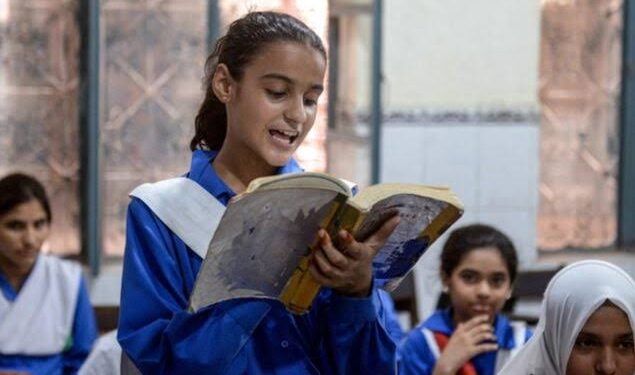Pakistan has launched a two-day international conference on “Girls’ Education in Muslim Communities: Challenges and Opportunities.” The event, hosted by the Ministry of Federal Education and Professional Training, began today at the Convention Centre, Islamabad.
Prime Minister Shehbaz Sharif inaugurated the conference with a keynote speech. He reaffirmed Pakistan’s commitment to promoting girls’ education and gender equity. The summit brings together over 150 international dignitaries, including ministers, ambassadors, scholars, and representatives from organizations like UNESCO, UNICEF, and the World Bank.
Key Global Participation
The conference has drawn participants from 47 countries, including notable figures like Nobel laureate Malala Yousafzai. Malala arrived in Islamabad early today and was welcomed by Parliamentary Secretary for Education Farah Naz Akbar. She will deliver a speech highlighting barriers to education for women and strategies to overcome them.
Other global leaders present include Malaysia’s Minister of Religious Affairs, Mohammadin bin Mokhtar, and scholars Sheikh Ahmed Ahmedou and Sheikh Ahmed Al-Mustafi from Mauritania. Delegations from Myanmar, Iraq, and Kyrgyzstan are also attending.
Focus on Challenges and Opportunities
The summit aims to tackle critical issues affecting girls’ education in Muslim communities worldwide. The discussions focus on overcoming societal barriers, leveraging cultural and religious values to promote education, and exploring innovative solutions.
Speakers will share transformative success stories and propose actionable steps for improving access to education for young women. Topics include gender equality, inclusivity, and collaboration between governments, NGOs, and local communities.
Islamabad Declaration
The conference will conclude tomorrow with the signing of the Islamabad Declaration. This formal agreement represents a collective commitment by participating countries to empower girls through education. It will serve as a roadmap for inclusive and sustainable educational reforms in Muslim communities.
Pakistan’s Commitment to Girls’ Education
Prime Minister Shehbaz Sharif highlighted Pakistan’s efforts to address gender disparities in education. He emphasized the importance of empowering young women to build a brighter, more equitable future.
“Educating girls is not just a right; it is an investment in our future. Together, we can create an inclusive world,” he said during his opening remarks.
Malala Yousafzai’s Role
Malala Yousafzai’s participation underscores the global importance of the event. She remains a leading voice for girls’ education, especially in regions where cultural and economic barriers exist. Her presence adds weight to the conference’s objectives and inspires collective action.
Collaboration and Innovation
The conference encourages partnerships between stakeholders to drive educational reforms. Governments, international organizations, and community leaders are exploring ways to implement practical solutions. The emphasis is on aligning policies with the unique challenges faced by Muslim communities.
This landmark event underscores Pakistan’s leadership in addressing global challenges in education. By fostering dialogue and collaboration, the conference aims to build a future where every girl has access to quality education. The Islamabad Declaration will set the stage for transformative change, paving the way for a more equitable world.
Related Stories:
OIC summit to Focus on Afghan Women rights situation
Global Summits To Watch in 2025
Six Countries Refer Afghanistan Women’s Rights Violations to ICC at Geneva Accountability Conference
















